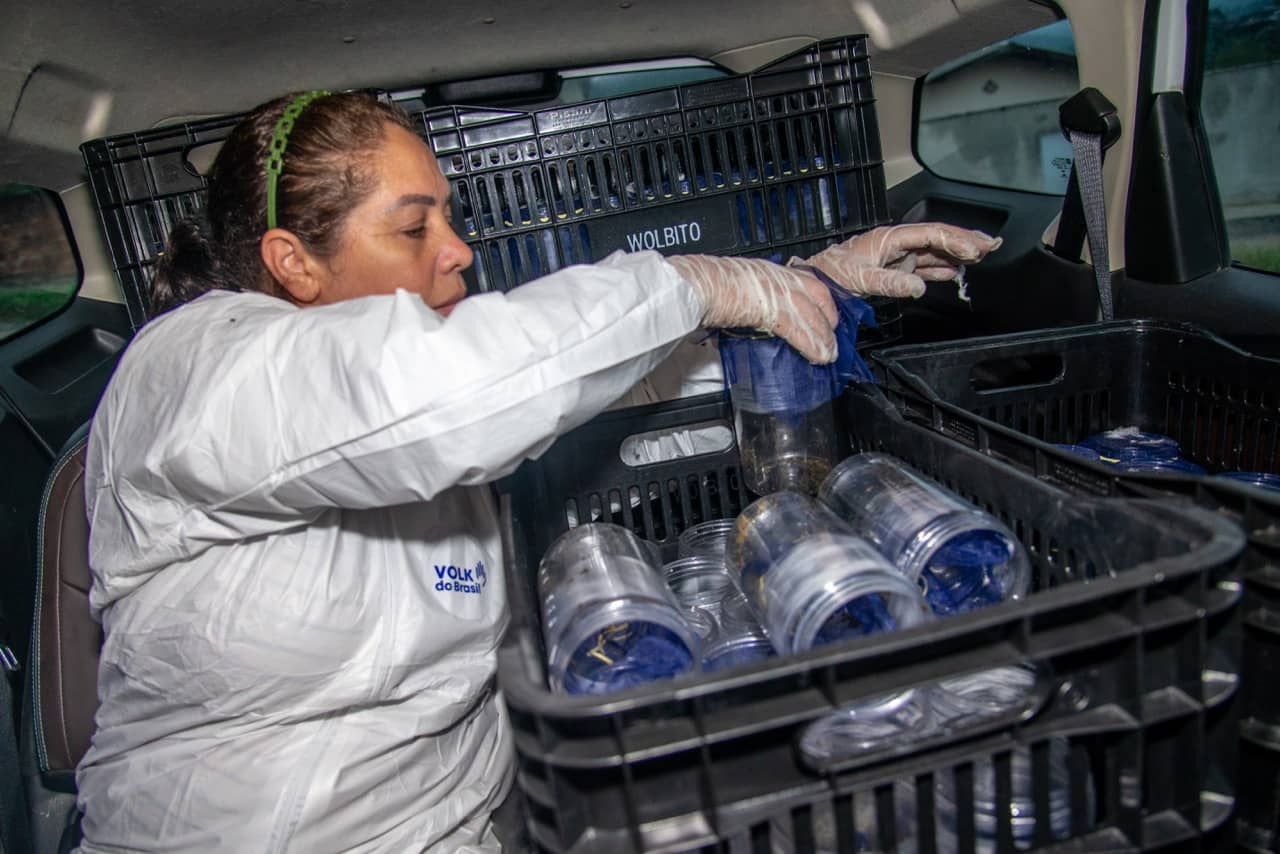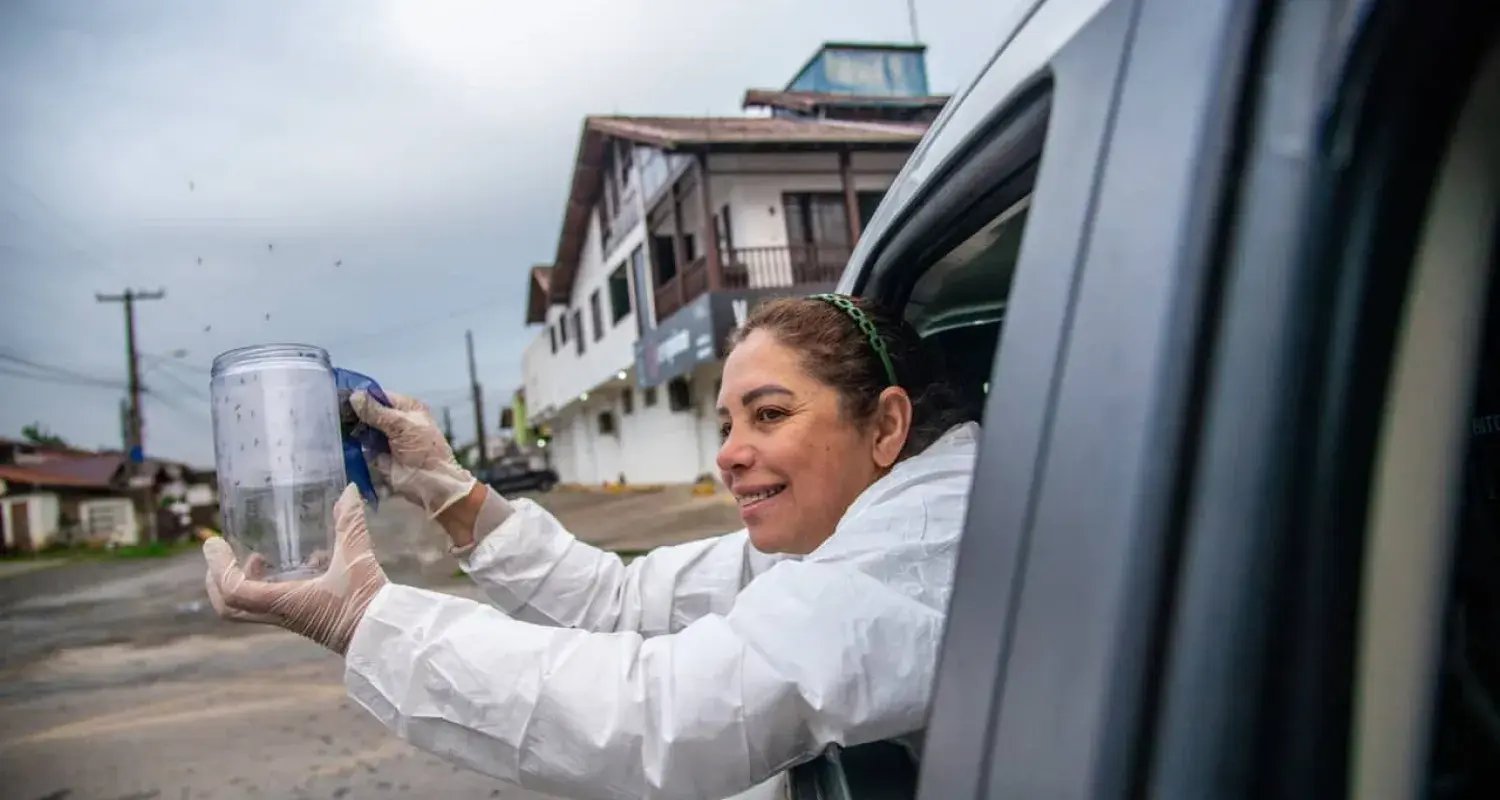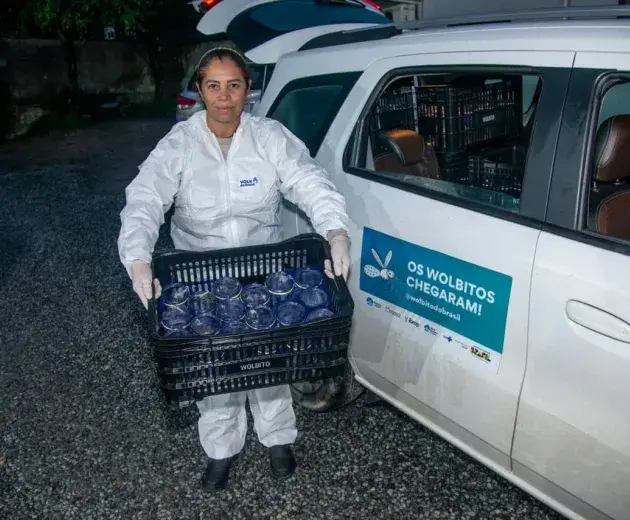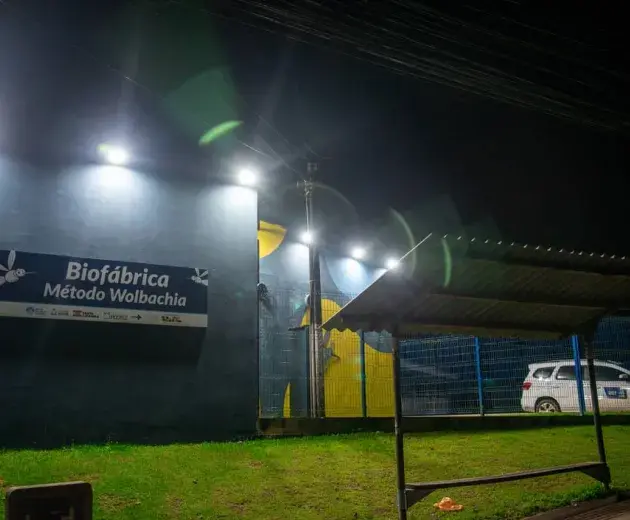In Joinville, Brazil, endemic control agent Lúcia Jordan releases Wolbachia mosquitoes four days a week as part of an expanding effort to combat dengue. After surviving the disease herself, she now helps protect nearly 75 per cent of her city's 600,000 residents. Early results show dramatic impact, with dengue deaths dropping to zero following our Wolbachia method deployment.
“While I am releasing the mosquitoes, I feel happy,” says Lúcia Jordan. “Because to me it is as if I am saving lives — every mosquito that goes out is meant to improve the environment, to stop dengue, and other diseases like Zika and chikungunya.”
Four days a week, Lúcia rises early in the morning and heads to a small biofactory perched on a steep hill in the centre of Joinville, a city of roughly 600,000 people in southern Brazil’s Santa Catarina state, known for its manufacturing and industrial heritage.
Until recent years, Joinville hadn’t been too severely impacted by mosquito-borne diseases, but as climate change lengthens the mosquito season and accelerates the speed at which the world’s deadliest creature expands its geographical range, the city, along with others in the south of the country, has seen a number of devastating outbreaks in the past few years.
When the first phase of Wolbachia (known as Wolbito in Brazil) mosquito releases started in August 2024, Joinville was still reeling from a dengue epidemic which had impacted many parts of the city.

From Dengue Survivor to Disease Fighter
Lúcia knows what it’s like to suffer from dengue as she contracted the virus a year before the project began, and just days before starting a new role as an endemic control agent.
“I had dengue just before starting to work in environmental surveillance,” she says. “It was very hard. A week with lots of pain, chills, no appetite, headaches, and a high fever. It felt as if my head was swollen.
“So from that moment on, when I learned about the Wolbachia project, I decided that I would also fight against this disease.”
Be Part of the Solution: Join Our Community
Discover how we’re transforming lives and combating mosquito-borne illnesses globally. Sign up for exclusive insights and updates delivered straight to your inbox.
"There's a lot of curiosity in the streets when I'm releasing mosquitoes. Many people stop and ask why we're doing this, and very occasionally this is negative. But most of the time the reaction is positive, because many already know about the project and have information from the internet or events.
"With family and friends, I always try to explain clearly about the Wolbachia bacteria, that it is found in 50 per cent of insects. People need to understand why this is happening. And it's well accepted."
Protecting Nearly 75% of Joinville's Population with Our Wolbachia Method
The first phase of releases in Joinville last year covered 17 neighbourhoods protecting roughly 360,000 residents, and early results have shown great promise. This second phase, led by Wolbito do Brasil, will reach almost 75 per cent of the city’s population, covering a further 15 neighbourhoods and 150,000 people.
Lúcia emphasises the early results from the first phase offer hope for the city.
“In Joinville, the project has had a very big impact. From 2023 - 2024, we had 86 deaths from dengue,” she reflects. “So, it is very significant to know that today the city has no deaths. And it’s thanks to this project, as well as the population being more aware to take care of their yards and not leave standing water.”




